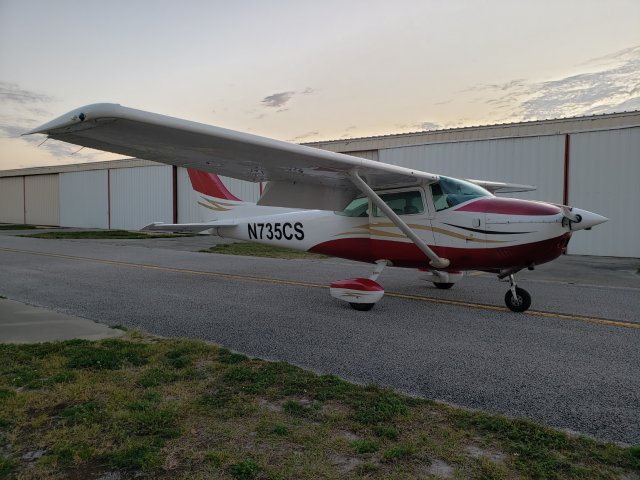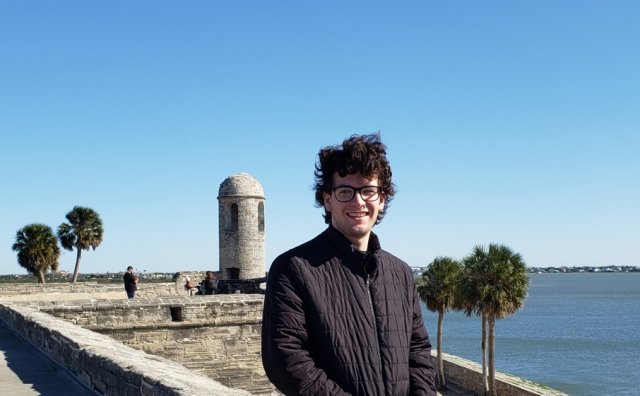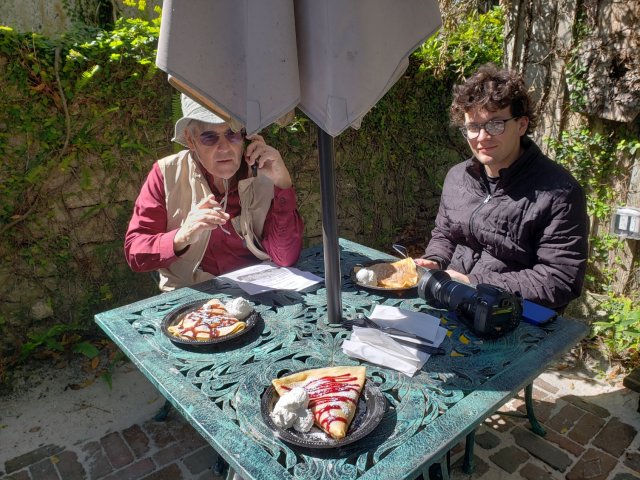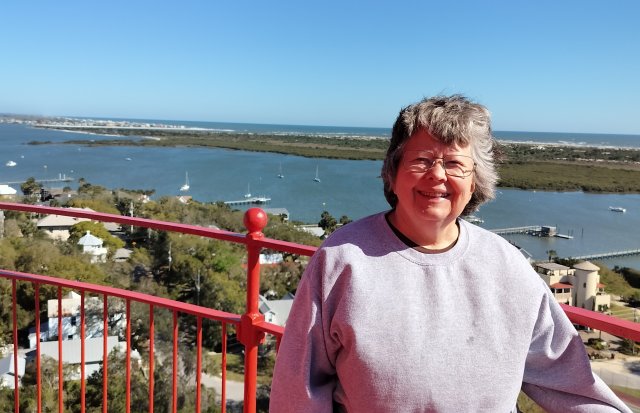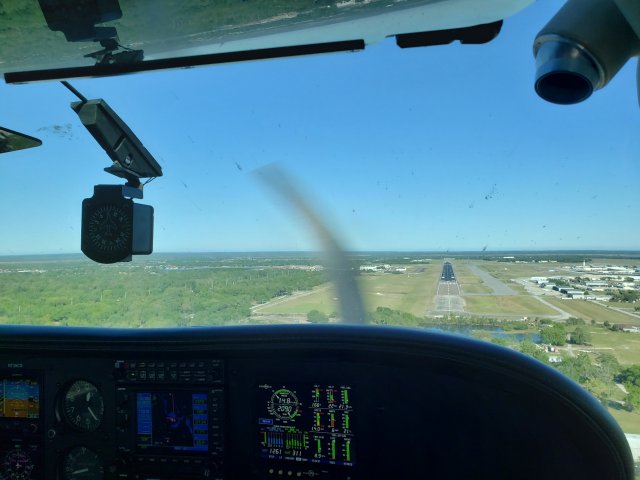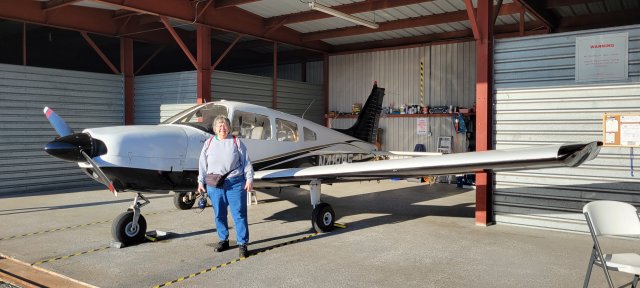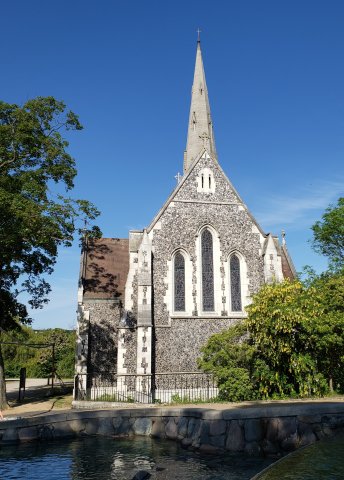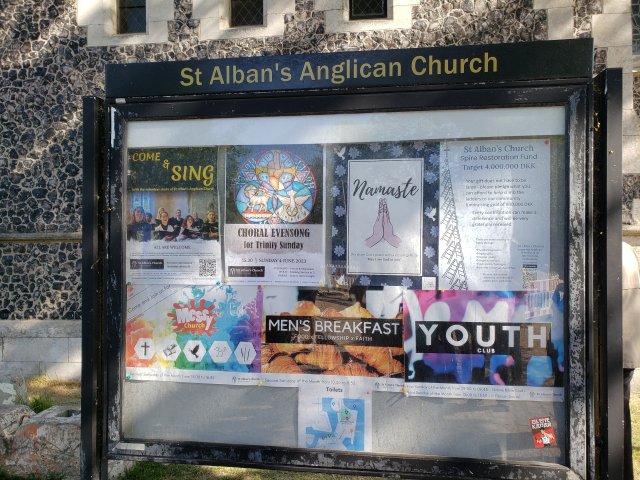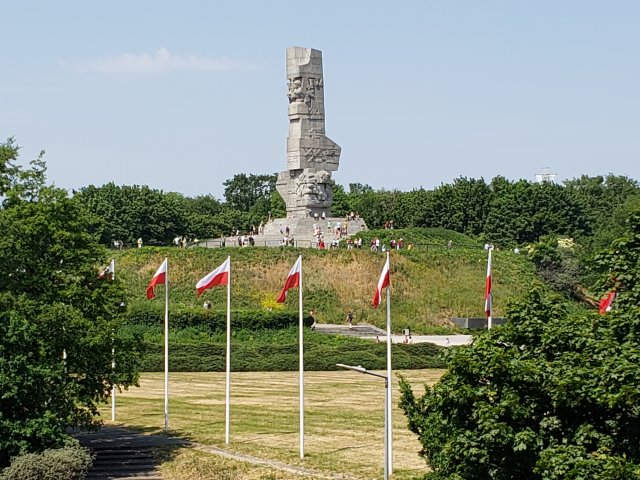When I read that Florida's legislature had voted to rename Palm Beach International Airport to "Donald J. Trump International Airport," it was not high on my list of things to be upset about. (Ditto the change from "Gulf of Mexico" to "Gulf of America." Around here it's simply called "The Gulf," anyway.)
But I'm not fond of naming things—airports, roads, college buildings—after people, especially living people. And I'm especially annoyed when good, solid workhorse names that have served for decades get replaced, benefitting no one but those who are paid to change all the signs. I remember when Idlewild Airport became JFK, and when Washington National acquired Ronald Reagan's name. When Central Florida's Bee Line Expressway to the coast became "Beach Line," I knew the authorities had more power than sense, as if tourists were too stupid to find their way eastward otherwise. (Even if they are, Google Maps makes up for a multitude of defects.)
Palm Beach County is both wealthy and liberal, and no doubt many of its citizens will cringe at President Trump's name on their airport. I feel their pain. We frequently travel up I-95 from Florida to Connecticut, and our favorite route crosses the Hudson River over the Tappan Zee Bridge. That is, the bridge that was subsequently renamed for former New York governor Mario Cuomo. I remember him all too well as governor, and cringe every time I see the renamed bridge signs.
But the bridge still gets me across the Hudson, and whether our grandson flies into Palm Beach or Donald J. Trump Airport, it won't affect my prayers for his safe landing.
Permalink | Read 118 times | Comments (0)
Category Travels: [first] [previous] Random Musings: [first] [previous]
Working my way through my father's vast collection of writings, I occasionally find a gem I wish to share.
(Okay, so "vast" is a relative adjective, and perhaps an exaggeration—it's not as if I'm working through the letters of C. S. Lewis or something—but in personal terms it's accurate.)
This came from Dad's 1987 journal documenting his Elderhostel experience at Ferrum College, in Ferrum, Virginia. The program is now called Road Scholar, and no longer has the age restriction, but at that time it was primarily for those over 65, that being the age at which most people retired and could go on such adventures.
Also at the college were a group of gifted 6th graders from nearby Martinsville. They also were at the ice cream social and were told by their teachers to mix with the old folks, so it turned out to be a pleasant evening. I think the future governor of Virginia may have been amongst them. One of the women asked the boy about what they were doing, and then said, "I'll bet you didn't expect to see so many old folks here."
He replied, "I don't know, I haven't seen any yet."
Smart and wise. I could envision voting for him.
Permalink | Read 419 times | Comments (0)
Category Travels: [first] [previous] [newest] Random Musings: [first] [previous] [next] [newest] Inspiration: [first] [previous] [next] [newest] Glimpses of the Past: [first] [previous] [next] [newest]
Okay, so there's a lot I could post (and plan to) that's more important than this, but having visited New Zealand and our lovely Kiwi friends (nearly 25 years ago now) the country, and the Maori, have a special place in my heart. Said heart was especially warmed today when I saw this video of a group of Maori performing a Haka dance at a London vigil for Charlie Kirk. I'm sorry I can't embed it here; I hope you can see it. Not that it will mean much if you haven't been to New Zealand, but maybe you can appreciate the tribute, anyway.
You can learn a bit more about Haka from the Wikipedia article.
Haka includes various forms serving different ceremonial purposes. These functions include: [emphasis mine]
- welcoming guests (haka pōwhiri)
- fare-welling and mourning the deceased (waiata tangi)
- giving advice or instructions (waiata tohutohu)
- restoring self-respect (pātere)
- intimidating adversaries (peruperu – war dance)
- and transmitting social and political messages (haka taparahi, ngeri)
I hear that the CDC is recommending that anyone travelling abroad get vaccinated for measles. No matter where they're going.
"Never had it, never will." (Are you old enough to remember that 7-Up commercial?)
If my doctor recommended testing as part of my annual blood draw, and Medicare would pay for it, I might consider checking to see if my antibody response is still robust after all this time. After all, it has been a few years since I had the measles.
As it turns out, the CDC is okay with that. If you dig down just a little from the scary news stories and read what the CDC actually says, they acknowledge that if you've had measles in the past, you're good to go.
This week, we combined a number of objectives into one visit to Florida's St. Augustine: Showing Noah the sights of America's oldest city, giving him the final "cross-country" trip needed for his IFR license, and using a free Marriott stay that was threatening to expire. It was not the cheapest way to see the city, but it sure was fun.
We left early Monday morning, Noah and I flying in a Cessna 182Q Skylane, and Porter driving our car so that we would have transportation at our destination. Despite a last-minute warning of violent storms that could have scuttled the whole trip, the weather could not have been more beautiful.
I began the journey with an amusing (in hindsight) incident. As I was climbing up into the plane, the seat back that I was holding onto shifted, I lost my grip, and the next thing I knew I was on the ground, looking up at the sky. I did better on the second attempt, no worse for wear except for having pulled a muscle in my left arm. That's well on its way back to health, but I'll admit I did entertain thoughts of visiting Centra Care just so that when they asked me what my problem was, I could reply, "I fell out of an airplane."
Thanks to heavy traffic at the Sanford Airport, plane and car arrived at the Northeast Florida Regional Airport at about the same time, and our Saint Augustine adventure began.
One place I have not yet tired of visiting is the Castillo de San Marcos. After that, we walked down St. George Street, and ate lunch at Mimi's Famous Crepes, another St. Augustine must-see ... er, must-eat.
Thus fortified, we spent quite a while in the Lightner Museum, followed by the Villa Zorayda Museum. We crossed the Bridge of Lions at just the right time to get stranded on the far side when the drawbridge opened, but not for long. Dinner we enjoyed on the balcony of O. C. White's Seafood restaurant; it was a bit windy, but pleasant with a nice view.
Porter and I had visited the Spanish Military Hospital many years ago, but this time found it changed considerably, being more of a lecture than a tour, and with less that we could see on our own. (Not that we can rely on our own memories for that, having recently proven that we can watch a Poirot mystery multiple times and be surprised by the identity of the murderer each time.) Nonetheless, we found it worthwhile.
The next day, we partook of our free Fairfield Inn breakfast, and then drove to the Saint Augustine Lighthouse and Maritime Museum. That, too, has changed a lot (and for the better—more to see) since we were there last. Fortunately, they still allow you to climb the 219 steps to the top. (Photo of me at the top courtesy Noah Daley.)
From there, we visited the Ripley's Believe It or Not museum. I know we have one of our own in Orlando, but St. Augustine's is the original. If the Lightner Museum is the collection of the eclectic accumulations of a very wealthy man, Ripley's is the version for the hoi polloi, grotesque rather than elegant. Worth visiting every dozen years or so.
For lunch we returned to Mimi's, this time for savory rather than sweet crepes—the Bacon & Brie crepe is well worth returning for—supplemented by Ben's Soft Pretzels next door. After that it was time for the final leg of the adventure, and here we are approaching the runway at Sanford. (As with most photos here, click to enlarge.) An accident on I-95 caused us to beat Porter home, but not by much. We knew he would be late, because we saw the traffic jam as we flew over it.
Back in December, I wrote about the time Noah took his little sister flying.
Today was our turn.
We flew to Ocala and back in a Piper Cherokee Archer.
Not only was the flying fun, but so was seeing (and hearing) an international airport from the "inside." Thanks, Noah!
This is a partial post that I began in December 2016, and have neglected ever since. Whatever other commentary I was going to add is lost, but this much I believe worth preserving, particularly because we were visiting a major Northeastern city (the major Northeastern city) less than two weeks after Donald Trump was elected president of the United States.
Porter extended our usual family Thanksgiving get-together in Pennsylvania by arranging a five-day visit beforehand to New York City. It was an awesome visit. First of all, for the people. Coming so soon after the election, it was delightful to find everyone so polite, considerate, and going out of their way to be helpful. Yes, this was New York City! Having had our stereotypes of Venice shattered, I shouldn’t have been surprised. Even a multi-racial discussion about the election itself, which we overheard in a local restaurant was calm, reasoned, and willing to give others the benefit of the doubt. Willing to give Donald Trump a chance.
We stayed in three different hotels during our stay. This was for financial reasons, but also gave us the opportunity to experience different parts of the city. Our first hotel was the most interesting, being located in the middle of an Orthodox Jewish neighborhood, where almost all signs were in Hebrew, and we stood out as much as we had among the Gambians during our visit to that country earlier this year. I think we were the only non-Jewish guests in the wonderful little hotel. From that Jewish neighborhood we easily walked to our dinner at a Muslim restaurant: Senegalese, where the food is similar to Gambian food. When we arrived, it was just closing for a private party, but the owner kept a section open for us when he learned why we wanted to eat there.
No one understands genealogists. People get all excited when I say we saw Hamilton, but their faces fall when I pull out my photos of his grave. A visit to NYC would be incomplete without a spot of research at the NY Public Library, and if the time was too short (as always), it was productive.
Except for that, strolling through Central Park, and a moving walk around the 9/11 Memorial, our visit was focused on museums—and on eating our way around the world. In addition to Senegal, our culinary travels included Indonesia, Japan, Thailand, and India. Sadly, our favorite Korean restaurant had closed. In Chinatown we ate French pastries—and visited a Jewish museum and active synagogue. New York is amazing. Our only disappointment came from the Metropolitan Museum of Art, where the artwork is stunning, but the docent was ignorant and some of the curatorial decisions appalling. Our experience with the Museum’s branch at the Cloisters, however, was outstanding. Two other gems that aren’t on every tourist’s list are the Morgan Library and Museum, and the Frick Collection. I was reminded of the importance of the very wealthy to the world of culture. Not only do they commission art, they preserve it.
Even though incomplete, I think I've covered most of our New York City adventures for that trip. As when Porter was working at NYU back in 2010—and unlike my memories from the 1970's—I felt safe, even on the subway. I'm happy to have visited the city during the few, anomalous years when efforts to keep public spaces safe were largely successful. My friend who lives there paints a different picture now—though as one of New York City's Finest, and a top-notch detective, he might have a somewhat jaded view.
My own view of very wealthy people has also become jaded since 2016. I still think they have done immeasurable good in preserving culture that would otherwise have been lost, and arranging for it to be made available to the common people. But I'm not so sure about the super-rich today; it's one thing to create a museum, and quite another to fund bioweapons labs. But that's another story. I'm okay with building electric cars, developing a space program, and fighting for freedom of speech. I guess it all depends on the person—wealthy or not.
On June 8, 2023, we were in Gdansk, Poland. It was just for a day, and Gdansk was not for the most part a particularly pleasant city to visit. Poland has had more of a struggle than, say, East Germany in the aftermath of winning its freedom back in the 1980's, and Gdansk is far less clean and modern than the former East Berlin.
However, Gdansk was as moving and as inspiring as Berlin, where we had touched remnants of the Berlin Wall and stood at the site of Checkpoint Charlie. Arguably, Poland led the revival that liberated Eastern Europe, and it was an awesome experience to see the Gdansk shipyard where the Solidarity Movement had its beginnings.
An unexpected additional blessing was that we were in Gdansk for the Feast of Corpus Christi, and we were vividly reminded that in Poland during the Soviet era, the Catholic Church resisted the assaults on Christianity more successfully than in most other Eastern European countries, and that the Church's leadership and courage was a major factor in their liberation.
It came as a complete surprise to us, walking around the city, suddenly to find ourselves in the middle of their Corpus Christi Day procession, and what a moving experience that was. Even with all the tourists (like us) milling around and taking pictures. (I was not so moved as not to notice the very clever sound system, with speakers strategically placed throughout the procession to keep everyone together. I've been in too many much, much smaller Palm Sunday services, in which the tail of the procession gets hopelessly and painfully out of sync with the head, not to appreciate this innovation.)
This story from my father's journals shows that air travel technology may have changed a lot in the past 50 years, but travel delays are much the same. What I find most interesting was the complete lack of airport security, not even checking the passengers' tickets for boarding, and thus not realizing that they were trying to board more passengers than there were seats on the plane. Also that there was another plane, with crew, available to accommodate the supererogatory passengers.
June 30, 1967, complete with foreshadowing. He was travelling from Philadelphia to Albany, New York.
This morning as I left for work it was raining hard, and at the time looked as though I could have trouble flying home tonight, if there were no change in the weather. The rain stopped sometime during the morning, however, and by the time I caught a taxi to the airport about 6:30 this evening, the weather posed no problem. I walked to the 30th Street station to get the cab because it was not obvious I would get one in front of the GE building. Traffic was quite heavy as we started out toward the airport, but was not really bad as we neared the airport. Apparently most of the traffic was made up of people heading for the beach.
The airport terminal was crowded, however, and I had a 5 or 10 minute wait before I could get a seat in the coffee shop and a much longer wait before I got my dinner. The coffee shop at the Philadelphia Airport is not the place to go for a quick meal. I had plenty of time, however, as my plane did not leave until 8:20.
My flight to Kennedy Airport was on National Airlines, and was uneventful, although the plane was full. But at Kennedy I saw the biggest crowd I have ever seen around an airport. I chose to walk to the Mohawk counter, which is in the building diametrically opposite the National terminal, and I found the roads, and many of the parking lots, filled to overflowing. The traffic was bumper to bumper and crawling on most of the roads, and the parking lots near the National terminal were not only jammed, but overflowing, with cars parked on sidewalks, and double-parked in ways that blocked other cars from getting out. Things were not quite so bad near the Mohawk-Eastern building, but were still quite crowded. A good percentage of the crowd were servicemen—showing without a doubt the influence of the Vietnam war.
At the Mohawk counter I was informed that because of a radar failure at Kennedy, my Mohawk flight would leave from LaGuardia and I should go to Gate 1 or 2 at 10:15 where a bus would take me to LaGuardia. So I called Lynn and told her the story and suggested that she call Mohawk before she went to the airport to meet me. It was obvious that we would be quite late.
The bus for LaGuardia was boarded, not at 10:15, but at 10:45, and after wending its way by devious routes, it arrived at LaGuardia and we were deposited at the Mohawk terminal with no indication of what to do next. Before long, however, an announcement said that our flight was boarding at Gate 25. What it meant was that it would eventually board at Gate 25.
After some delay, we boarded the plane with absolutely no checking of our tickets. As the plane became more and more crowded, the stewardess asked people to move forward and sit down, and she was greeted with the news that there were no more seats. Eventually, the plane was emptied, and all the passengers were loaded in a more orderly fashion on two planes. I gather that the problem was that an earlier flight from LaGuardia had been cancelled, and its passengers put on my flight on a standby basis, but somewhere along the line, the stand-by status got lost. Fortunately, there were two planes and crews available.
The upshot of all this activity (or, at times, inactivity) was that I arrived at the Albany Airport at 1:30 a.m.
[I have been having so much fun posting excerpts from from my father's journals that I decided to give it its own category: Glimpses of the Past. This is the first one posted in that new category; eventually I'll try to go back and include previous posts.]
In 1964, my father and his co-workers flew from Albany, New York to Washington, DC for a meeting with The Customer. (It wasn't till decades later that I learned that the customer was actually the CIA, but that's another story.) Their return flight was somewhat eventful, as he recalled in his journal. (Emphasis, and comments in brackets, mine.)
When we got to the National Airlines counter we found the plane would be 15 minutes late (we found out later that the plane had been delayed in Jacksonville, Florida by President Johnson's plane either coming or going) so we had plenty of time. Then there was an announcement of further delay—the plane had made in emergency landing in Richmond because a passenger had had a heart attack. We had an hour and 50 minutes between planes at Idlewild [former name of JFK airport], so there was no panic over these delays, but there was a growing concern. Our plane finally arrived and we left Washington about an hour and 15 minutes late. We stopped at Baltimore and then the pilot appeared to make very good time between Baltimore and New York, making the trip in about 30 minutes. We deplaned and waited a while for the bus which would take us to the Mohawk Airlines terminal, but we arrived at the Mohawk ticket counter about 9:40 for our 10 p.m. flight, so we really didn't have any trouble.
Being delayed by the president and then by a passenger's heart attack are unusual enough, but what really struck me is the part I highlighted in bold. Arriving at the ticket counter 20 minutes before departure and having that be of no concern at all? Now that's impressive. Progress over time is not always in the positive direction.
When we lived in Rochester, New York, one of our neighbors grew red and black currant bushes in her backyard, and shared them with us. Sadly, she moved away soon after we become acquainted, and the bushes were removed. At the time, I thought the new residents just didn't want to bother with them, but maybe they knew something I didn't:
The plants were illegal. Here's the story. (17 minutes at normal speed)
In brief: Plants of the genus Ribes, which also includes gooseberries, are susceptible to a fungus that also produces white pine blister rust, which in the early 1900's was devastating our white pine trees.
Apparently the lumber industry had a more vigorous lobby than the gooseberry family, and our federal government both outlawed the Ribes family and began a massive program of eradication. If it had been the 21st century, gooseberry fans would have been demonetized on YouTube and banned from Twitter.
The federal regulations against Ribes were lifted in 1966, but many states still prohibit or restrict it. My neighbor's yard didn't become a legal site until 2003, and many places in New York still aren't. Here's an interesting list of state regulations. My favorite may be Pennsylvania: "In 1933, Pennsylvania passed a law that limited growing gooseberries and currants in certain areas; however, the law is not enforced. Therefore, all Ribes can be grown in the state."
(It must be pointed out, however, that laws that are traditionally not enforced can still be a threat. if your name is Donald Trump, growing currants in Pennsylvania might still land you in court faster than you can eat one.)
Back in the early 1900's, national governments apparently felt they were faced with a stark choice: save the pine trees, or save the currants and gooseberries. The United States chose lumber; Europe chose food. Both are important, of course, but in hindsight it seems clear that letting nature take its course might have been best. When governments take to using hatchets when flyswatters will do, bad things happen. In subsequent years, better approaches to the white pine blister rust problem have been developed. I suspect these developments would have come sooner if we hadn't decided to commit plant genocide instead.
Because of their great nutritional benefits, Ribes, especially black currants, are making a slow comeback. But I've never seen them in our local grocery store. For that, so far I still need to make a trip to Europe, where currants and gooseberries are easily found.
You might enjoy the post I wrote 13 years ago about my visit to a farm near Basel, Switzerland, where I was allowed to taste freely of gooseberries, three colors of currants, and other marvelous fruits that are difficult to procure here.
UPDATE 1: I have it on good authority that there's at least one farm in New Jersey where I can pick gooseberries and currants if I'm passing through at the right time. It would be interesting to know if "currants" listed on their website also includes the black variety, which New Jersey still heavily restricts—that is, if the Wikipedia article is correct, which is a risky assumption, though less so with currants than with current events).
UPDATE 2: Do not be confused by what are called Zante currants, which look like mini-raisins and are made from small grapes. You can find Ribes black currant products on amazon.com, but a search is more likely to misdirect you, if that's what you're looking for.
UPDATE 3: In the United Kingdom, Australia, and no doubt some other parts of the world, purple Skittles candies are black current flavored. In the United States, the flavor is grape. Not content with trying to eradicate the plant itself, we seem intent on eradicating America's taste for the fruit.
Permalink | Read 1866 times | Comments (2)
Category Health: [first] [previous] [next] [newest] Politics: [first] [previous] [next] [newest] Travels: [first] [previous] [next] [newest] Food: [first] [previous] [next] [newest] Conservationist Living: [first] [previous] [next] [newest]
If you want to be a local guide for the Viking cruise line, one of the most important things to remember is that a large number of your clients will be retired folks. That is, on the elderly side. When you are walking them through your beautiful city, with its Gothic churches, scenic views, and cute little shops, and ask, "Does anyone have any questions?" there's a high probability that the first inquiry will be, "Where's the nearest bathroom?"
Having returned just a few days ago from one of those lovely cruises, my mind was perhaps primed for that question.
Three times a week we take advantage of the therapeutic pool at our neighborhood park. It's a fantastic opportunity and we miss it when we are away, but there's one thing about their water aerobics classes that annoys us: all of the instructors insist on playing music during the workouts. I don't mind that when the music is instrumental and at low volume, but most of the instructors apparently assume that because our bodies aren't working as well as they used to, the same applies to our ears. And anything with lyrics tends to leave me with one or more earworms for the rest of the day.
Yesterday the music was not too loud, but the songs had words and were more than usually annoying. (Have I mentioned my 60-year aversion to the Beatles and all they engendered?)
But then....
What was that? What did he just say?
"There's a bathroom on the right."
Nah, couldn't be. Then he sang it again. Yep. "There's a bathroom on the right."
Clearly this guy was a Viking cruise guide before turning songwriter.
Turns out, I'm not the only one to have heard that. Google "bathroom on the right" and you find a large number of people who made the same mistake I did, and they can't all have recently been on a cruise with fellow senior citizens.
You'll also find that the real lyrics are, "There's a bad moon on the rise."
Frankly, I think the bathroom version makes more sense.
One of these days I hope to have a more coherent set of posts about our recent cruise, but that will be a while—and I still have barely started the big trip from a year ago. So for now, I'll take inspiration where I find it as I look through our photos.
On our brief visit to Copenhagen, one of the first sites we encountered was St. Alban's—the only Anglican Church in Denmark, built in the 1880's for the city's English-speaking population. We did not get to go inside, our tour guide having a schedule to keep, put I did get some shots of the outside as we went by. Its flint walls are unusual for Scandinavia.
I took the next picture just to remind me later which church this was.
But then this notice on the board caught my eye.
I find that odd, and not a little bit jarring. In much of the world, that would be a distinctly un-Anglican sentiment, though some American Episcopal churches would undoubtedly be fine with it.
I am not and have never been one who desires a "spa treatment." Manicures, pedicures, full-body massages, facials, being rubbed with weird-smelling oils—the very thought makes me shudder. Granted, I can't really say I don't like the experience, because I've never tried it. On the other hand, I've never tried running into a burning building, either, but I think I can safely say I'd rather pass on that experience.
It seems to be generally true that cruise ships and resorts include spa facilities. I've always avoided them as enthusiastically as I avoid the casinos, bars, and smoking areas.
And then came our Viking Ocean cruise.
What's the difference? This spa had a dry sauna, a steam room, a cold room (with "snow"), a cold-water bucket shower, and ... a cold plunge—a small, shallow pool of a temperature that reminded me of the Pacific Ocean off the cost of Washington. And, unlike all the other spa services, these didn't involve an additional charge.
All were interesting, but I soon settled into a routine I loved: time in the steam room, followed by (much less) time in the cold plunge, then back to the steam, then the cold, etc. On the first day, the experience took a lot out of me—just two in-and-out dips left me completely exhausted.
But also exhilarated. With each day, each dip, the cold became less of a shock, and I was able to stay in the water longer. If I'd been able to swim it would have been easier, but the tank was even smaller than a typical hot tub.
I'm totally amazed at how good it made me feel.
I was told that the steam room was 113 degrees, and the cold plunge 52 degrees. (If those seem like weird numbers, consider that they were originally given in Celsius.) It occurred to me that I could duplicate the experience at home with a hot shower and our pool, which has been known to get into the low 50's in the winter. So there's no need to go to a spa for it. Whether or not I will actually do it at home remains to be seen.
But from now on, if I'm on a cruise or at a resort with spa facilities, I won't automatically avoid them like the plague.
"By the rude bridge that arched the flood..."
Oh, wait, that was a different war.
But here, where we are berthed, on September 1, 1939, the first shots of WWII were fired. (This is the view from our balcony.)

